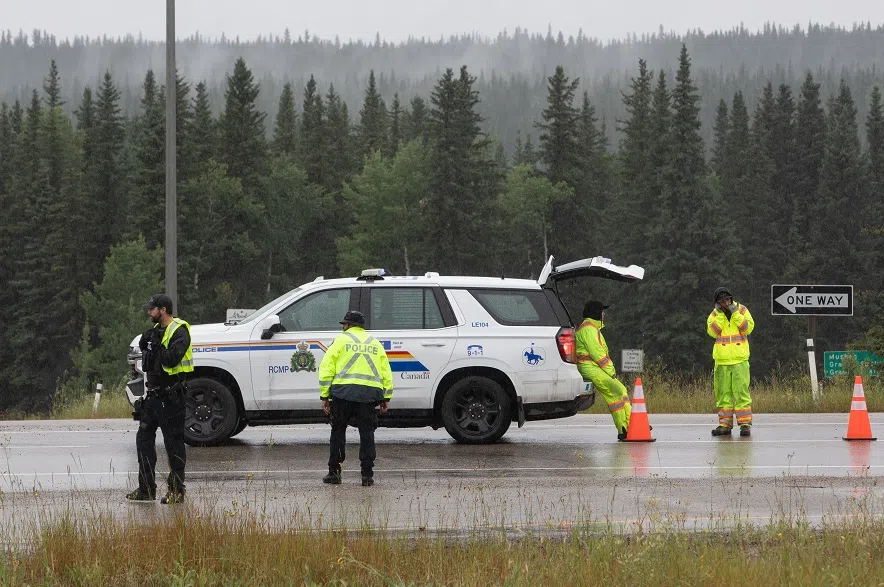Many people remain displaced as wildfires rage in Jasper National Park, burning structures and homes in the idyllic Alberta community.
Dr. Douglas Clark, acting executive director at the School of Environment and Sustainability at the University of Saskatchewan, said if it wasn’t for the quick thinking of the incident commander, the Jasper wildfires could have been fatal for many residents.
“In Jasper, they went only three hours from the ignition of those fires and observations that their behavior was really aggressive to making the decision to announce an evacuation alert.” said Clark, who is also a former National Park Warden with training in wildfire suppression and fire ecology.
READ MORE:
- “Now lost”: Jasper fire torching cherished memories along with forests
- Grande Prairie lends helping hand to Jasper wildfire evacuees
- Rain, cooler weather limiting spread of wildfires in Jasper National Park
“If the incident commander hadn’t been as decisive, and if the park superintendent – who is someone I worked with a long time ago – wasn’t a competent person, we would potentially be looking at a tragic and horrible scenario.”
While the damage from the fires is vast, Clark said the forests and wildlife in the area will recover.
“The ecosystem is going to bounce back quite quickly. The fire was hot, but it moves through vegetation types and forest types that are used to being burnt. There is an awful lot of lodgepole pine in there, and that, among other species, depends on being burnt for reproduction.” Clark explained.
“Unless there is some unusual dimensions to this fire and how things go afterwards – and that may well be the case – I think we can look forward to a really green landscape in about five to 10 years. Of course, the job of rebuilding the community is a whole other question.”
Clark said Parks Canada has been working for decades to mitigate wildfires in the area and reduce the risk to the community.
“In warden school in 1991, they took us out onto the fire break, which was brand new at the time, and they basically told us ‘Here are the scenarios we’re worried about. Here’s what is gonna happen,’” Clark said. “There has been 30 years of planning and preparation to deal with the scenario that Jasper faced.”
When asked if there was anything that could have been done to avoid the fire entirely, Clark said that unless there was no vegetation at the park, there was really no way to prevent a wildfire from starting.
“I’d be very surprised if it wasn’t worse without the mitigations that have been in effect. It’s not as though nobody has been paying attention,” Clark said, though he noted he’s not a specialist in wildfire mitigation techniques.
“One could always say more could have been done, but it’s really an open question. How much could be done to absolutely secure a town against the kind of fire behavior that we see now in forests today?”
Clark warned other provinces that the summer is not over and more significant wildfires could be coming.
“Jasper may not be the only community to face severe risks this summer. Everybody in western Canada needs to be ready for that and prepared for that,” he said.
“Right now, there are fires burning from British Columbia through to northern Manitoba, so it’s an active fire season and it’s got months yet to go.”











